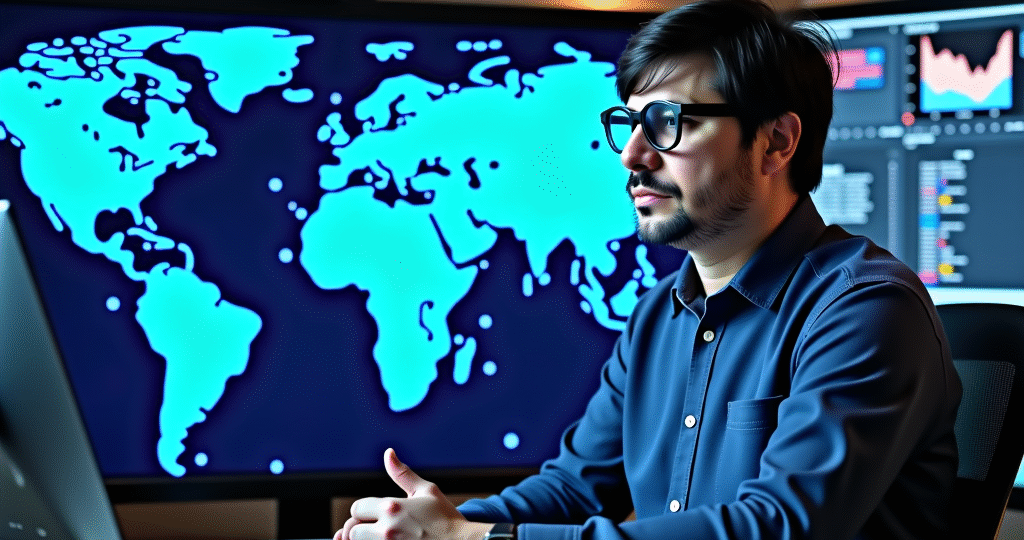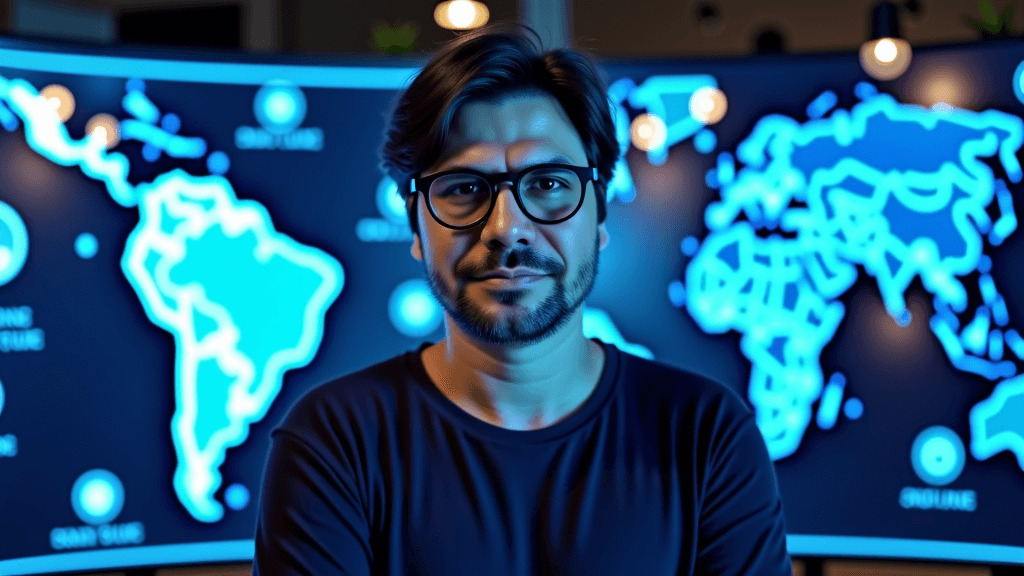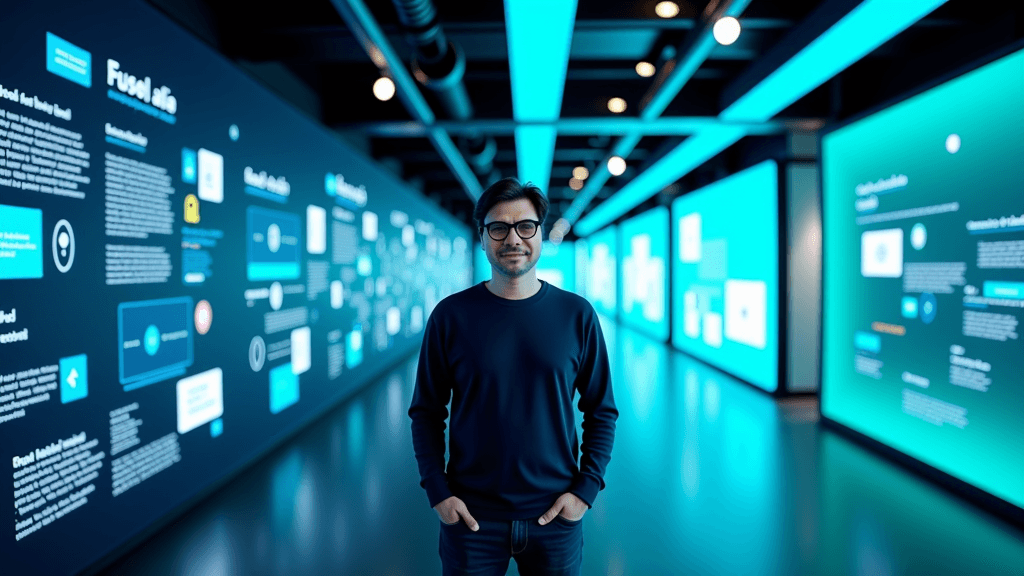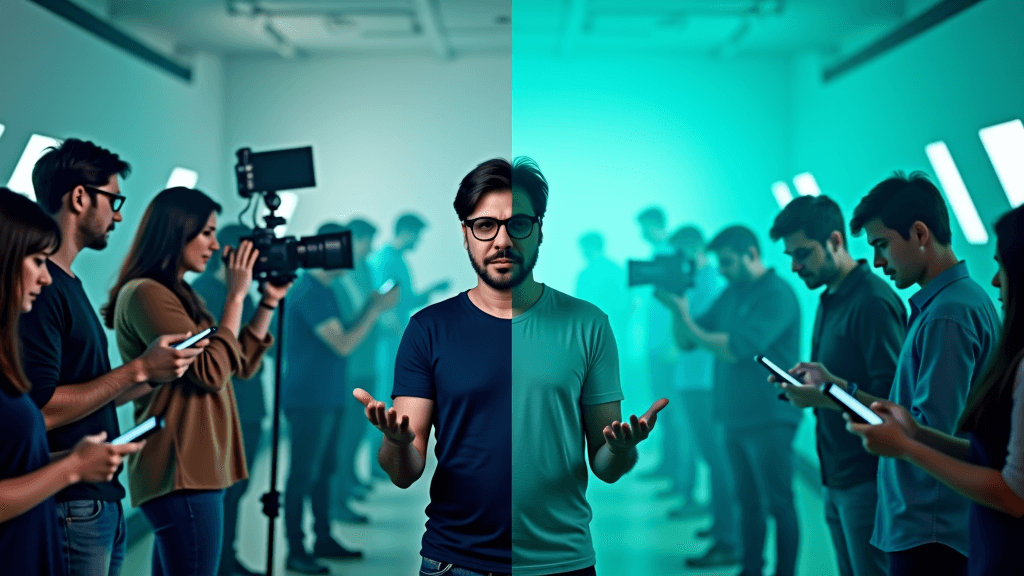US$ 90 Billion in AI and the New Global Tech Race — Why Brazil Can't Stay Out of This Trillion-Dollar Race
July 17, 2025 | by Matos AI

When Donald Trump announced an investment of over US$1.4 billion in AI infrastructure., it wasn't just an impressive number that gained attention. It was the definitive sign that we are entering the second phase of the artificial intelligence revolution—a phase that defines who will be relevant in the 21st century and who will be left behind.
And while this is happening, Brazil faces a fascinating paradox: 13% to 41% of Brazilian companies already use AI in digital security, but we still face deficit of more than 400 thousand specialized professionalsHow do we navigate this new reality?
The Trillion Dollar War: US vs. China in the AI Race
What we've witnessed in the last 24 hours isn't just technological competition—it's a complete redefinition of global power. The $1.5 billion announced is part of the Stargate initiative, which foresees $1.5 billion in private investment over the next four years..
Join my WhatsApp groups! Daily updates with the most relevant news in the AI world and a vibrant community!
- AI for Business: focused on business and strategy.
- AI Builders: with a more technical and hands-on approach.
On the other side, China implements its own billion-dollar strategic plan, with companies like DeepSeek and Alibaba launching open source systems that compete directly with Western solutions. The Chinese government funds over US$100 billion in the chip industry alone to guarantee technological autonomy.
But here's the crux: this isn't just a dispute between two countries. It's a matter of technological survival for all nations.
The Geography of Digital Inequality
A study from the University of Oxford reveals something that should concern us deeply: the computing infrastructure for AI is concentrated in just 32 countries, mainly the United States, China, and the European Union. Africa and South America? Practically nonexistent on this map.
And this isn't just a statistic. It's a reality that determines who will have a say in humanity's future. As my experience supporting thousands of startups has taught me: whoever does not participate in the infrastructure, does not participate in the decisions.
For Brazil, this means we urgently need to:
- Clear public policies for AI development
- Massive investments in qualification professional
- Strategic partnerships that put us on the global map
- Incentives for data centers and energy infrastructure
When Technology Reveals Our Worst Instincts
But not everything is rosy in this technological race. The circulation of racist videos on TikTok produced by Google's Veo 3 tool exposes an uncomfortable reality: technology amplifies both the best and the worst of humanity.
And the problem goes further. Researchers are inserting hidden commands into academic papers to manipulate AI assessments, compromising scientific integrity. It's as if we're discovering that the tool that was supposed to make us smarter is being used to make us more dishonest.
This reminds me of something I always say in my work with startups: technology is not neutral — it amplifies the values of those who develop and use it.
The Paradox of Human Predictability
One of the most fascinating discoveries of the last 24 hours comes from researchers who developed the 'Centaur' model, capable of predicting human decisions with 64% accuracyBased on data from 160 psychological experiments involving 60,000 participants, the model reveals something disturbing: we are becoming more predictable than we imagine.
But here's the question: if AI can predict our decisions, does that mean we've lost our humanity? Or does it reveal an incredible opportunity to better understand ourselves?
In my experience mentoring entrepreneurs, I realize that predictability can be a powerful tool when used ethicallyCompanies that understand behavioral patterns can create more relevant products and more meaningful experiences.
The Future Is Here — And It Has a Name: Smart Mergers
One practical application that caught my attention was how AI is transforming mergers and acquisitions processes. Considering that 70% of M&A transactions do not reach the expected value, predictive algorithms are:
- Reducing by 40% the due diligence time
- Improving in 23% the value estimates
- Increasing by 30% post-merger talent retention
This isn't the future—it's the present. And companies that don't adapt will be left behind.
Opportunities and Risks for the Brazilian Entrepreneur
As we follow this trillion-dollar race, it's important to remember that great transformations always generate great opportunities. The Google launches NotebookLM, focused on precision and privacy, shows that there is still room for innovation in specific niches.
For Brazilian startups, I see opportunities in:
- AI Solutions for Local Markets where global giants don't reach
- AI-powered cybersecurity tools for our market of 122 thousand daily attack attempts
- Educational applications that democratize access to technology
- Solutions for agribusiness and sectors where Brazil has a competitive advantage
The Warning We Cannot Ignore
But there is one warning sign that deeply concerns me: 72% of American teenagers already use 'AI companions', with significant risks to emotional development. This isn't just a technological problem—it's a matter of human development.
As a society, we need to think not just about how we create technology, but about how it is shaping future generations. The AI we build today will determine the kind of humanity we have tomorrow..
Why This Moment Is Historic
We are at an inflection point. The US$1.5 billion investment is not just a number—it is the realization of a vision of a future where AI defines national, business, and personal competitiveness.
Brazil has a unique window of opportunity. We can choose to be spectators of this transformation or protagonists of it. And that depends on decisions we make today—not tomorrow.
In my work mentoring startups and leaders, I see that the winners are not necessarily the first, but those who adapt best and fastestWe have talent, we have creativity, we have a robust domestic market. What we need is strategy, investment, and, above all, urgency.
The trillion-dollar AI race has already begun. The question isn't whether Brazil will participate, but how and when. And for companies and entrepreneurs, the time is now.
In my mentoring, I help startups and leaders navigate this transformation, identifying real opportunities and building strategies that make sense for the Brazilian market. Because I believe that our technological future cannot be built by others alone—it must have our brand, our creativity, and our worldview.
✨Did you like it? You can sign up to receive 10K Digital's newsletters in your email, curated by me, with the best content about AI and business.
➡️ Join the 10K Community here
RELATED POSTS
View all



